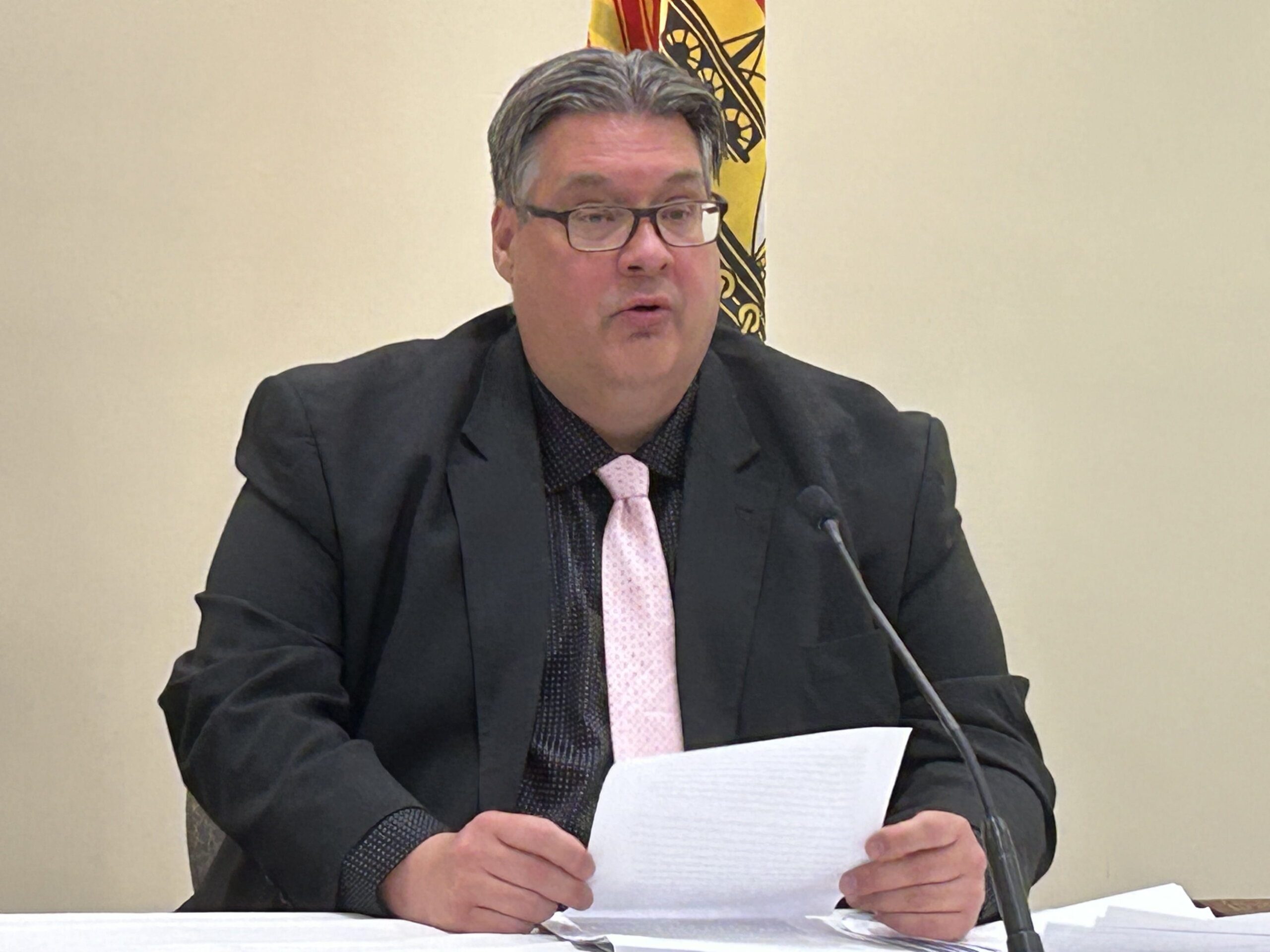Kelly Lamrock, New Brunswick’s Child and Youth Advocate, has completed his scathing review of Premier Blaine Higgs’ Progressive Conservative government’s changes to Policy 713, which is supposed to provide a safe space for LGBTQ2S+ students in the province’s schools.
The report was released publicly on Tuesday and is titled On Balance, Choose Kindness (which makes me think it should have been presented by drag queen Mrs. Kasha Davis). It’s a pretty scathing look at how Higgs’ government has disadvantaged queer and trans youth in the province. It bears mentioning that the province’s department of education had no parental complaints on file of instances where a student kept pronouns or preferred names secret when Higgs insisted on these policy changes.
The legislature, as a whole, requested Lamrock conduct the review after Higgs’ government changed the policy that allowed teachers to let students adopt their preferred names and pronouns in a classroom setting, and which required the informed consent of the student before parents were alerted to the changes. That policy was replaced with the requirement to get parental consent for names and pronouns to be adopted, and added the following:
If it is not possible to obtain consent to talk to the parent, the student will be directed to the appropriate professional (i.e. school social worker, school psychologist) to work with them in the development of a plan to speak with their parents if and when they are ready to do so. If it is not in the best interest of the child or could cause harm to the student (physical or mental threat), the student will be directed to the appropriate school professional for support.
Higgs insisted that this was about “parental rights,” a phrase that is often used to cover for homophobic and transphobic concern trolling, and which is once again gaining mainstream momentum under the deceptive slogan of “Leave Our Kids Alone.” And indeed, Lamrock noted that in his call for public comment, there was a “small minority” of responses where there was a call for a broader rollback of LGBTQ2S+ rights and to have protections for gender identity removed from the province’s Human Rights Act, which tells us a lot about why putting these matters up for public debate is hugely problematic for the queer and trans communities.
Lamrock noted that under the fundamental hallmarks of Higgs’s new policy, parents are given an effective veto over how a child may be addressed until age 16, and that establishing a threshold of a risk of “physical/mental harm” in favour of an unspecified different intervention doesn’t actually remove the requirement to get parental consent to change how a child may be addressed.
He goes on to examine the legal framework of parental rights, pointing to the confusion on display as part of the discourse, but makes this important point: “Parents also do not own their children. Nobody owns children. The basis for parental rights is not found in the law around property. It is founded in the rights to privacy, the child’s right to family, and possibly within the law around conscience and expression rights.”
The autonomy of queer and trans children and youth is impaired by the effective parental veto that the policy provides. Lamrock notes that children also have rights that need to be considered in educational policy, and those include the right to self-expression, to be treated equally, to have a “zone of privacy,” and to their own gender identity. Those rights need to be considered under the framework of the “evolving capacities of the child,” or their age and maturity rather than an arbitrary cut-off of age 16.
Lamrock continues on to find that the policy change Higgs insisted on becomes inherently contradictory. If teachers insist that they can’t refer to the youth by their preferred name or pronoun without parental consent, and then send them to the social worker or psychologist about speaking to their parents, those social workers or psychologists have said they will use the youth’s preferred name or pronouns as a matter of professional standards. Lamrock lambastes the insistence on this process as “performative” on the part of Higgs and his government.
“Rather than a coherent operational policy, it is reduced to political onanism whose only tangible outcome is to inflict extra bureaucracy upon child and school personnel before rendering itself somewhat moot,” Lamrock writes. “The only real change is a period of uncertainty and embarrassment which doctors, psychologists and social workers agree is bad for the child.”
He goes on to point out that the lack of consistent rules in the face of discrimination is akin to Calvinball, from the classic Calvin and Hobbes comic strip: “If you don’t like how the game is going, you call out a new rule to suit your short-term desires. As a child’s pastime, Calvinball works well. The reference is also shorthand for situations where governments simply change principles conveniently when they want a given result. When applied to the rights of vulnerable minorities, Calvinball is a terrible idea.”
To that end, there is no policy around children and youth such as “Anthony” preferring to be called “Tony,” or preventing students from using Westernized names in daily interactions. That this policy applies only to queer or trans students is arbitrary and discriminatory.
Lamrock calls out the crass political considerations that Higgs made in instituting these changes—political considerations that may also have included trying to rile up enough social conservatives within his party to save his leadership from being challenged by members of his party who are fed up with his autocratic leadership style (and two of his own Cabinet ministers have already resigned as a result).
“The grownups in a position to govern need to go beyond slogans and symbolism,” Lamrock writes. “We need to approach the work with care, attention to detail and kindness. That is what serious adults do when they make laws, they move past demands and slogans and embrace complexity and nuance. We all need to rise to that level. Children need grownups to act like grownups.”
As we see other conservative leaders in this country flirt with far-right elements that include “Leave Kids Alone” groups in the hopes of winning votes, it helps that we have this report that explicitly calls out that these kinds of policy changes are unconstitutional and harmful. Other premiers won’t be able to pretend that any attempted copycat policies aren’t without consequences to those they’re marginalizing for the sake of performance or political onanism.


 Why you can trust Xtra
Why you can trust Xtra


